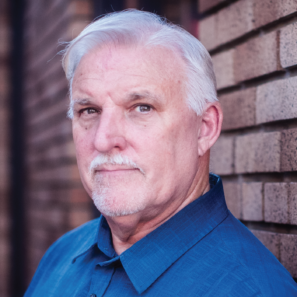By Joe Dallas
Originally posted on joedallas.com on November 4, 2016.
In yesterday’s post we looked at what can be a dry topic – hermeneutics – and applied it to what’s definitely a hot topic: Jen Hatmaker’s recent announcement that she believes homosexual unions can be holy, and that the church needs to not only welcome lesbians and gays, but offer approval and support for their relationships as well.
How Jen arrived at her position speaks to hermeneutics, the discipline of interpreting and approaching the Bible. So yesterday I thought we should look at her conclusions about scripture and homosexuality, then offer a response.
But she reached some other conclusions as well, conclusions you’re likely to hear from a growing number of leaders and laypeople who’ve have a change of heart on this topic. Often, that change of heart on homosexuality (“I used to think it’s a sin; now I know it’s of God”) is accompanied by a belief that the Church, and its members, cause real damage to lesbians and gays when we teach the
traditional view.
“I’ve seen too much pain and rejection at the intersection of the gay community and the church,” Hatmaker said in a recent interview with Religion News, adding, “the church hasn’t treated the LGBT community like family. We have to do better.”
Her husband Brandon agrees, writing on his Facebook page: “We’ve seen so much pain among the LGBTQ community: Suicidal teenagers. Divided families. Split churches. So. Much. Pain.”
This isn’t a new argument. Author Brian McLaren, commenting on his own change of heart regarding homosexuality, said “— just as the Western Church had been wrong on slavery, wrong on colonialism, wrong on environmental plunder, wrong on subordinating women, wrong on segregation and apartheid — we had been wrong on this issue.”
Christian ethicist David Gushee agrees, acknowledging his change of views on homosexuality and declaring that eventually “99% of all reasonable Christian human beings will do the same.”
Statements like that carry weight. If saying that homosexuality is wrong actually hurts homosexual people, causing them emotional damage and encouraging others to harm them as well, then it’s no longer homosexuality that’s on trial. It’s the belief that God condemns it.
Is the Defendant guilty? Believe me, the jury’s deliberating as we speak. You will surely be asked, at some point, to consider the evidence.
The Hurt that Harms —
I would argue that believing homosexuality’s a sin, because it falls short of God’s intention, is a belief which harms no one. But when a belief is wrongly expressed or applied, then harm can be done. But it’s a harm caused by the wrong expression or application, not the belief.
So, for example, if I believe parents should discipline their children (a belief I hold without apology) that alone harms no one. If a parent misapplies that belief by physically abusing their child, or uses that belief to justify his evil behavior, then the application, not the belief, is the problem.
Likewise, the belief that Jesus is the only way to the Father is anything but harmful. Yet at times some have mishandled that belief by attempting to force conversions on people, persecuting the people they were allegedly trying to convert. Again, the approach, not the belief, was the problem.
The right position, expressed or applied wrongly, can cause harm. I should know.
In 1984 I repented of homosexual behavior, renounced my identity as a member and activist within the gay community, relocated to a new county, and started at ground zero.
Vulnerable and craving fellowship, I went for the first time to a solid Bible believing church, led by a pastor I’d admired for years. At the beginning of the service – mind you, just a few days after I’d turned my life upside down and was feeling like a newborn – the Pastor I was eager to be fed by opened his message by announcing that a new gay rights law was being considered by our governor, that homosexuals were in fact child molesters, that he knew first hand that they violated children, and that if they ever touched his grandchildren he’d beat them up.
Then the entire congregation broke into thunderous, enthusiastic applause.
Welcome home. I knew, in that moment, that this pastor and virtually all his flock would assume I’d been molesting children if they knew where I’d been and what I’d repented of.
So I get it. I know what it feels like to be wrongly accused, viewed with contempt, stereotyped and maligned, all because someone not only thinks homosexuality’s a sin, but also holds that belief in all the wrong ways.
That hurts, and it’s a hurt which, without question, causes harm. It happened a few times to me – not often, thankfully – and it’s happened to quite a few people I’ve known.
— and the Hurt that can Heal
But there’s another kind of hurt I experienced during my years within the gay community. Not often, but memorable. It came upon me when a Christian would cross my path, strike up conversation, and question me about my sexuality.
Gently, even respectfully, he or she would ask me if I’d really searched the scriptures out on the subject, really prayed for truth, really been honest with myself, studying the matter like a disciple wanting to follow rather than a human wanting to self-justify.
Without exception, these believers were kind, fair, never pushy, always gracious. Yet walking away from them I felt like I’d just been sucker-punched.
My gut would turn cold, their words would echo mercilessly, my discomfort would grow, and more often than not I’d turn the volume down with a six pack of beer. It hurt, but I know – and I think you do, too – what the hurt was all about.
I will always revere these people who had real affection for me but, as love dictates, refused to allow their human affection to override divine truth. Their words troubled me, but it was a troubling that finally awakened my soul, rather than a pain which harmed it.
In fairness, many lesbian women and gay men seem perfectly comfortable with their identities and behavior, and plenty of them have no objection to people holding a different view then theirs. They may roll their eyes at someone holding the traditional view, or laugh at them, or just ignore them. But they’re not thrown off by someone else’s disagreement with them.
But when a homosexual person claims that hearing someone disagree with them is actually damaging, or that experiencing someone’s disapproval is destructive, I can’t help but wonder if they really do feel confident in their position.
Generally, when you feel right about yourself, you can live with someone else’s disagreement or disapproval. You may not like them saying you’re wrong, but you don’t feel a need to prevent them from doing so.
All of which makes it hard to believe that saying something is wrong equates harming a person. Were that the case, Jesus Himself, who often said many things were wrong and, in fact, pulled no punches when rebuking sin, would have been guilty of damaging the people He critiqued.
But conviction of sin, however uncomfortable, produces far more life than approval of sin.
“We have to do better,” Hatmaker admonishes, and there we agree. We can always be kinder, more respectful, more servant-like in attitude and action.
But always in a Christ-like way, employing His balance of grace and truth. When Jesus forgave an adulterous woman, He in one fell swoop rebuked the hypocrisy of her accusers, extended her grace, and called her sin “sin” without apology. (John 8:3-11) We who say we follow Him should go and do likewise.
If this subject is of interest to you, then you might consider ordering a copy of my book
“Speaking of Homosexuality: Discussing the Issues with Kindness and Clarity.”
You can get your copy through amazon.com here.



Comments
Add Comment